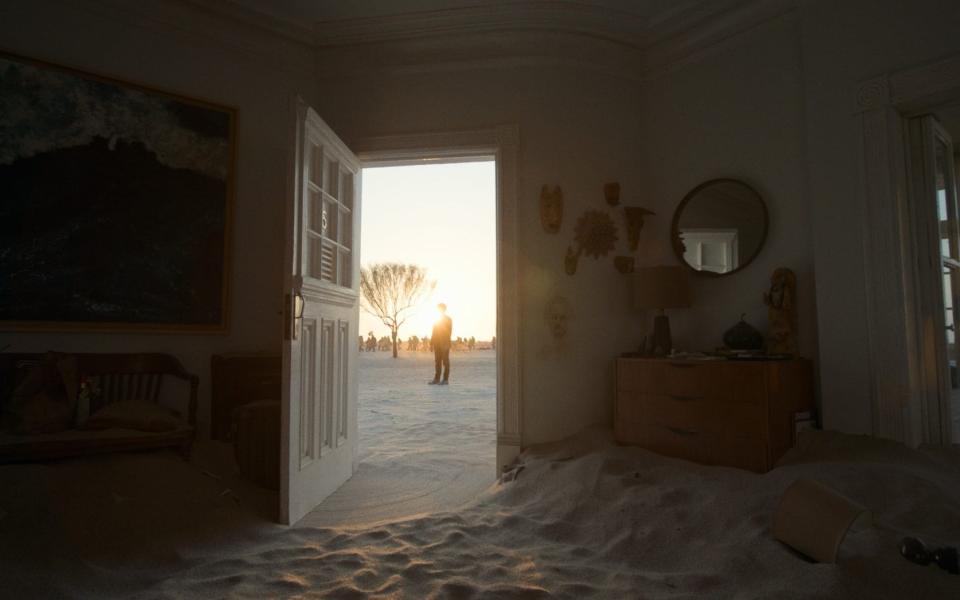Bardo, review: is this the ultimate cinematic humblebrag?

Alejandro González Iñárritu, the internationally acclaimed, multi-award-winning Mexican director, has come to Venice with a film about the sheer hell of being an internationally acclaimed, multi-award-winning Mexican director. Is this the ultimate cinematic humblebrag? An act of fearless artistic self-dissection? A boisterous, self-deprecating show-business satire? A floundering mid-career taking of stock? A brazen attempt to court Fellini comparisons with a slinky contemporary take on 8½?
Bardo allows itself ample room to be all of the above and more – but alas the worthwhile aspects of the exercise mostly fall flat. Iñárritu has cooked up a personal epic of the most exhaustingly swaggery type, man-spread across three hours of screen time during which flashes of genuine, startling brilliance occasionally manage to push their way through the strenuously zany macho-visionary fug.
The Iñárritu stand-in, played by Daniel Giménez Cacho, is Silverio Gama, a documentary filmmaker who is about to receive prestigious honours from professional bodies in both Mexico and the United States. This inspires him to travel from his adopted home in Los Angeles back to Mexico City, and an existential crisis flares up in short order: the only treatment for this is a strong course of magic-realist happenings and surreal dream sequences shot on 65mm film stock by Darius Khondji.
A talk show appearance goes horribly wrong when Gama finds himself dumbstruck, allowing the host – an envious ex-colleague – to bombard him with a litany of his own shortcomings on live television. But at other points he talks without even moving his lips, narrating his life from the inside – a habit that greatly irritates his wife Lucía (Griselda Siciliani) and his elderly mother. He debates the conquistador Hernán Cortés atop a mountain of naked Aztec bodies; meets his dead father in a nightclub toilet and temporarily shrinks to prepubescent size. Meanwhile in the background, an international deal is being struck to sell the Mexican state of Baja California to Amazon, the e-commerce giant, mapping Gama’s fears of selling out onto the world map itself.
There’s a surprising vulnerability here sometimes: Iñárritu tackles some devastating life events like baby loss, and often beats his detractors to the punch, having secondary characters – that ex-colleague, mainly – level brutal criticisms at Gama’s work which Iñárritu clearly recognises also apply to Bardo itself. But the film’s determination to go big at all times is oddly diminishing: playful detours overstay their welcome, while emotionally delicate moments are undone by corny CG. The title refers to the transitional, between-lives state in Tibetan Buddhist philosophy. Purgatory would be an ungenerous translation, but not far from the truth.
15 cert, 160 min. On Netflix now

 Yahoo Movies
Yahoo Movies 